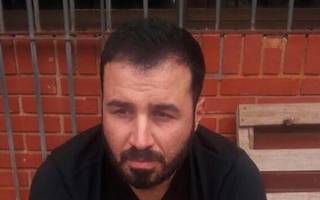
A Paraguayan man charged with conspiring to export loads of cocaine to the United States pleaded not guilty in Miami federal court on Monday.
But what the conspiracy charge against Ali Issa Chamas did not mention was that he is close to a network of relatives and associates with ties to Hezbollah, a terrorist organization based in Lebanon accused of numerous bombings and plots against Israeli and other Western targets, according to published reports and terrorism experts.
Chamas, 36, is of Lebanese descent but has lived for the past decade in Paraguay, which along with Brazil and Argentina form what’s known as the Tri-Border area. U.S. authorities say it’s a hub for a variety of illicit enterprises such as drug trafficking and money laundering that have long operated as fundraising fronts for the Hezbollah.
While Hezbollah has evolved into an influential political force in Lebanon, the U.S. government has considered it a terrorist organization since 1997.
Chamas was arrested by Paraguayan authorities last August at Ciudad del Este’s international airport for trying to smuggle 39 kilos of cocaine hidden inside 27 boxes of plastic wrap.
He was charged by a Miami federal grand jury with distributing that cocaine “knowing” that it “would be unlawfully imported into the United States,” according to an indictment. Part of the shipment was intended for shipment to associates in Houston, though the U.S. extraterritorial trafficking statute allows for Chamas to be prosecuted in South Florida.
Paraguayan authorities extradited Chamas to Miami in mid-June.
The federal public defender’s office, which is representing Chamas, did not respond to a request for comment. He is being held in the federal detention center in Miami as he awaits trial.
A counter-terrorism expert with the Washington, D.C., nonprofit Foundation for Defense of Democracies said Chamas’ extradition was significant because it shows U.S. authorities have turned their attention once again to the festering Tri-Border area.
“For a long time, Paraguayan authorities have been in a constant state of denial about Hezbollah in their midst,” said Emanuele Ottolenghi, a senior fellow at the foundation. “It sends a political signal that they’re willing to be more forthcoming and cooperative.
“It’s a signal from the United States that there is a problem [in the Tri-Border] area and that they have to deal with it,” said Ottolenghi, who testified in May before a Senate Foreign Relations Subcommittee.
Ottolenghi, whose foundation was formed in the aftermath of the 9/11 terrorist attacks, focuses on foreign policy and national security. A former Oxford University lecturer, Ottolenghi said Hezbollah, with assistance from Iran, has become ingrained in Paraguayan society and the other Tri-Border nations, helping criminal cartels and local mafias ship drugs and other contraband to markets in the United States, Europe and other parts of the world.
“They then launder revenues through sales of consumer goods,” Ottolenghi told the Senate subcommittee. “Finally, those profits fund terrorist activities.”
Gen. John F. Kelly, former commander of the Southern Command based in Miami and now secretary of Homeland Security, told a congressional committee in 2015 that Hezbollah has depended on support from the Lebanese diaspora community in South America to finance terrorist attacks against Jewish, Israeli and other Western targets.
“These clan-based criminal networks exploit corruption and lax law enforcement in places like the Tri-Border Area of Brazil, Paraguay and Argentina and the Colon Free Trade Zone in Panama and generate revenue, an unknown amount of which is transferred to Lebanese Hezbollah,” Kelly told the Senate Armed Services Committee.
“Unfortunately, our limited intelligence capabilities make it difficult to fully assess the amount of terrorist financing generated in Latin America, or understand the scope of possible criminal-terrorist collaboration.”

Leave a Reply
You must be logged in to post a comment.